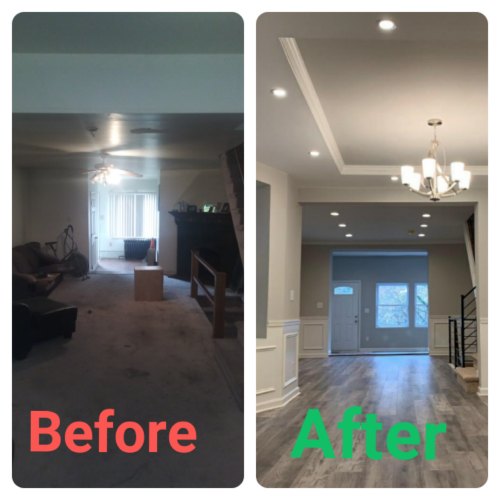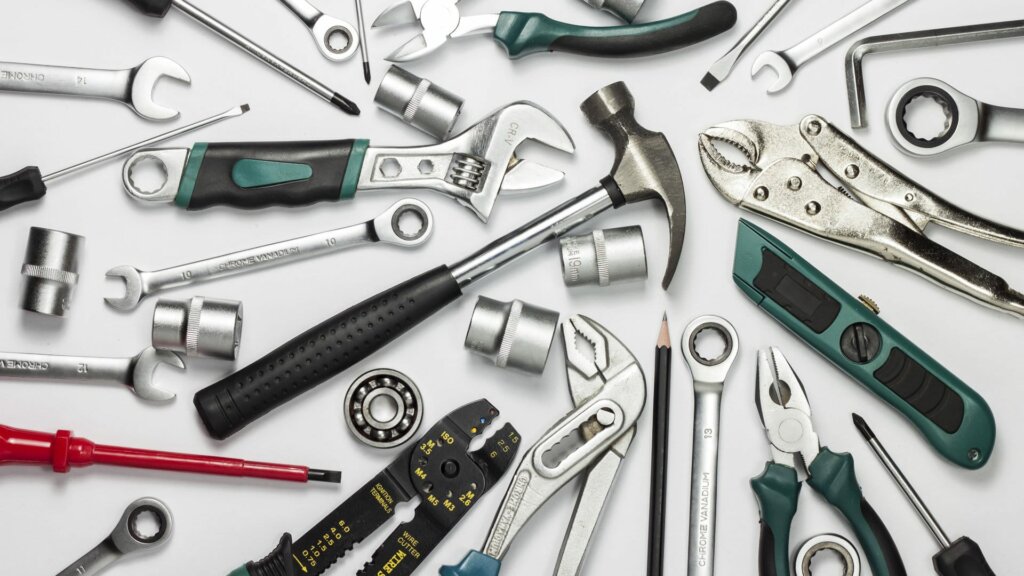
Some of the world’s wealthiest have substantially lived off the opportunity to own real estate. Sometimes, the real estate market can be tricky to generate money for some individuals. Most people assume that real estate is risky; we have found this inaccurate in some instances. Regardless of the city, anyone can learn how to become a home investor in any real estate market.
How to Home Invest in Any Market?
Each real estate market is unique, but similar to building wealth and establishing success. We decided to elaborate on the ins and outs of becoming financially free when investing in real estate. Plenty of real estate forms exist, but we wanted to focus on two methods. One of the most common and popular ways people tend to make money off real estate is by purchasing fixed and flip homes; these home investors will buy a home at a low price, make the necessary repairs, and refinance or sell the property for profit!
The second common way a home investor will build wealth from real estate is by purchasing property for rental purposes. Plenty of Americans have been participating in this for years because there will always be a market for renters; even during the real estate market crash in 2008, people still found ways to generate wealth from real estate services.
Buying Property 215 is a family-owned real estate company that has been growing its business for many years and is looking to share its knowledge with individuals who desire to learn and become leaders. As a Philly home investor, we aspire to see others succeed within the real estate industry!
How to Become a Home Investor with Rehab Properties?

Are you exploring different routes to produce wealth within real estate? Renovating and selling the home is one of the best methods to see adequate profits from real estate investing. The process is simple and beneficial for all involved.
First, you’re taking a house the seller desires to relieve, mainly because the property is not in the best condition. Then, you will complete the work to the home to bring it to its fullest potential, also known as the ARV (After Rehab Value).
The first aspect you need to focus on if you want to purchase homes to turn some profit is learning the different methods to acquire real estate. Finding a qualified distressed property with potential can be very difficult for most. You can decide to go about this process independently, or the easiest way is to find a licensed realtor who handles acquiring homes for investors.
If you choose to locate residences independently, search for homes needing work. You can always begin the search to purchase your property by driving around the desired neighborhood where you may be interested in rehabbing homes. You can typically tell when a property has been vacant or ignored simply by seeing how the front yard and the front of the house present themselves. Watching overgrown grass is good; some properties stick out like a sore thumb. The distressed property may have a worn-down roof or boarded-up windows.
Once you have a few homes that could be appropriate for rehab, you can purchase a skip tracing service or search the internet and begin calling owners. You can keep trying this method till you find a willing homeowner looking to sell property!
- Purchase a property and complete the renovations. Use a realtor or a wholesaler to help you discover these desired properties.
- Another route will be to “drive for dollars” to locate potential properties, searching for signs that the homeowner may have a purpose for selling their home, like overgrown grass, violations, or boarded-up windows & doors. Research acquiring the homeowner’s information; call these homeowners and submit an offer.
Purchase Price is Key When Investing in Homes
How exactly do you know what sales price to purchase these houses you may want to renovate? There should be a basic rule that every investor should follow when evaluating the purchase price. When conducting the real estate comps, it helps to focus on a distance within a tenth or quarter of a mile from the subject’s home.
If you’re not dealing with a property in the city, you must go further, but attempt to stay within a mile of the house. You will need a real estate agent to help find accurate recent sales of homes where you plan to purchase a home. Once you locate a home that has been rehabbed and has the same square footage, bedrooms, and bathrooms that your home has, you can apply a formula to determine the correct sales price.
You now have what a real estate home investor calls a comparable property, a real estate comp. For example, if your similar property after rehab value is $200,000, you have an idea that it will cost close to $60,000- $80,000 in repairs to bring it to the value of $200,000. Then you complete the simple math of {ARV x .70 – Rehab cost = Purchase Price} EXAMPLE: (200,000 x .70 – 70,000 = 70,000).
Following this simple math equation, you should have no problem making a profit on your next rehab project or any other home investment. When you get your final figure, you must account for the six percent real estate agent commission you will be responsible for paying. As well as closing costs of roughly one to three percent of the total sales price, and any other charges you may incur during the closing process. Adding extra expenses to your construction cost is always good to leave room for error or unexpected costly obstacles.
- If feasible, conduct your real estate comps on a radius of a tenth to a quarter of a mile if within a city. If you’re running comps for a house in the suburbs, attempt to stay within a mile of your subject property. Comparable aspects to look for will be similar square footage, number of bedrooms and bathrooms, and other similar property features.
- Equation to determine the purchase price: {ARV x .70 – Rehab cost = Purchase Price}
The Home Invest Process From Start to Finish

Once you have the subject property you would like to rehab and have already settled on the home, you will want to have architectural plans drawn up and a scope of work from a reputable contractor.
When fully completed, it will let your plumber, electrician, and contractors know precisely how the home will conform to its new layout. Once this is finished, you can take these plans to your local township or municipal building to pull work permits on the subject home. When that is complete, you can get started on the demolition process.
First, you must gut the entire house from top to bottom and decide if you must dig out the basement to increase the ceiling height, which is unnecessary for most circumstances. Suppose the ceiling heights are already a proper height, typically anything more than 6 feet tall; you will not be required to do this.
Once the entire house is empty, you will want a contractor to come in and frame the home with studs, allowing for the rooms to be outlined. Then, you will bring in your plumber and electrician to put in the rough plumbing and electrical, usually the wiring for your lights and outlets. They must put one in at this step if you need a higher amp electric panel.
Next, in rehab, plumbers will install the new sewer lines and PEX piping for your new water lines. Once all of this is done, it’ll be time for the contractors to start coming in, putting up drywall, and laying down the floors. After that, the plumbers set it in the kitchen and bathrooms. At the same time, electricians finish any lighting, fixtures, and receptacles on the wall.
The last thing you’ll be required to do is have the carpet installed, and then the finishing touch of painting the walls. Once you get to this stage of the process, you will want to contact a reputable licensed agent familiar with the area in which your property is located!
- Once the property closes, the next step will be to draw up architectural plans, followed by a scope of work formulated by the general contractor. (Allows the plumber, contractor, and electrician to know the property’s layout.)
- Take the detailed plans to your local municipal building or city hall to pull permits and get these plans approved.
- Demolition process to ensure the home is gutted down to the studs, allowing for the rooms to be outlined. The plumber will come in to rough the plumbing, sewer lines, and PEX piping for water lines. The electrician will upgrade the electric panel to a higher amp and wiring for lights and outlets. Finally, the contractor will finish the walls and floors for the plumber to complete the bathrooms and kitchens.
How to Generate Rental Income
Everyone is aware that there are Landlords and Tenants in this world. We learn this at a young age when it is time to move out into the real world, and we may get our first apartment. Every month, you may be paying someone the privilege to own real estate. It is so common for millions of Americans to be paying rent.
If you are reading our article, you may be hoping to find something here to help you make that push to buy your first rental property. You are in luck because if you have a few thousand saved in your savings account, you should decide to purchase a rental home to help provide passive income. You don’t have to be a millionaire to buy a rental home, just a few thousand dollars and a suitable credit score.
There are a few things to consider when purchasing a home for investment purposes. Location is one of the first things you should focus on. You need to make sure you are acknowledging where you can maximize profit and gain equity in the home over time, more than just paying down the existing mortgage. Make sure you purchase a home for rental purposes and fully understand the rental property process to make a monthly profit instead of losing money. Be on the lookout for maintenance costs and repairs, and attempt to complete any necessary repairs to avoid further charges. There are tricks you can use to keep aware of a money-draining house.
- Rental properties generate passive income; a few thousand and a decent credit score is all it takes to own a rental property.
Location is Everything When You Own Real Estate

When it comes time to purchase your first rental home, you want to ensure you are buying in a location with growth and potential for value. You never want to buy a property in an area you know will decrease. It is tricky to tell if a property will depreciate in real estate, but look for sure signs when deciding on a location to own real estate; it is always near convenience stores, malls, and shopping centers for luxury purposes.
You will also want to be near social services such as doctors and hospitals. Cultural benefits, such as ethnic grocery stores, churches, libraries, theaters, and restaurants, can be a huge plus to a neighborhood. Being near police, fire, and other government buildings can also be desirable. It will make for a happy tenant, making it easy to rent the property.
Also, you want to ensure that the home is easily accessible to transportation such as highways, bus routes, regional rail, and airports. It allows tenants that rent from you to get to places much more accessible. This is a bonus if you find an area close to highly rated school districts; you will open the doors to having families rent from you. Plenty of factors decide the location of your rental home, and you must consider every aspect!
- Be aware of location; aim for a location with potential growth and increased property value.
- Signs of potential growth – near stores, shopping centers, doctors and hospitals, public transportation, churches and libraries, and grocery stores! It’s also beneficial to be near police stations and fire departments.
Deciding Your Price Range to Own Real Estate
Once you have found your location settings and are ready to buy, you must decide on the price range you can afford and the best number to buy the home at. Usually, when purchasing a home, you must put down at least ten percent. In some situations, depending on if it is your first home or how good your credit is, you could get away with putting down less money.
For the home you buy for investment purposes, you must ensure the mortgage is not more than the potential rent you will receive from the tenant. You can always use a website like Rentometer.com to give you an idea of the rent on the home. You can always follow the cap rate rule on investment properties (cap rate = net operating income divided by assessed value or purchase price.) For example, if you buy a home for $100,000 and the monthly rental rate is $1,000, you purchase the house at a 10% cap rate. If you’re learning to become a home investor, you want to stay around an eight to twelve percent rate. If you can find a home that falls into that category, we recommend you buy that home immediately.
- Usually, when you purchase a home, you must have a down payment of at least ten percent; in some cases, based on credit score and if it’s the buyer’s first purchase, they may be required to place down much less. Always make sure the mortgage will not exceed the rental rate.
- Follow the cap rate rule: (cap rate = net operating income divided by assessed value or purchase price.) If you’re a home investor, you want to stay around an eight to twelve percent rate.
Keep Up With The Property When You Home Invest
Deciding what type of appliances to have in the home can be complex. Most homes you purchase will have a stove, refrigerator, and microwave. Unfortunately, it does not happen for a house you decide to buy, or one of the appliances in your rental home stops working. When purchasing a new one, stay with a dark-colored appliance; it is easy to clean.
Cabinets should be the same; some landlords prefer higher-priced, more durable items, and others go with cheaper cabinets if they need to be replaced anytime soon.
Flooring is another part of the home you should not shell out too much cash for because it will likely get scratched or scuffed inside a rental home.
Finally, you would want to stay away from the carpet because of how easily messy it can get, and you don’t want to replace the carpet after every tenant.
- When purchasing home appliances, use a dark color because it’s easier to clean. Attempt to buy durable cabinets to last a reasonable amount of time. Stick with cheaper flooring due to tenants causing possible wear and tear.
Maintenance of Your Home When You Own Real Estate

Everyone is likely well aware of the issues you may face when owning property. We found plumbing issues to be something a little more common than others. Suppose it’s a clogged toilet, a leaky faucet, or no hot water.
There are plenty of things you will have to maintain in a home. The average life span of a water heater is anywhere from ten to fifteen years and will cost you around $1,400 to replace.
The average roof life span is about ten to fifteen years; depending on the roof’s size and style, you may pay around $5,000 to $10,000 for a brand-new one. Another costly repair would be the sewage system, which could last you thirty years, being an expensive repair if it begins to back up or get damaged. Another one is around the $3,000 range, depending on the size of the home.
If you have radiators on your property, you will encounter problems with your boiler, costing you $3,000 to $4,000 to replace your home. That one is another chunk of change that needs to be replaced. The good news is that you will only need a new one every twenty-five to thirty years. An HVAC system at your home is between $3,000 to $4,000 to replace every fifteen years.
With all these constant things going wrong in a house, someone may wonder how you can profit from a rental property. It may be stiff initially when you have a mortgage and expenses, but before buying a home, knowing the property’s overall condition is essential. If anything we mentioned here needs a replacement anytime soon, you may want to avoid purchasing or ask the owner to make house repairs before settling.
- The average life span of a water heater is anywhere from ten to fifteen years and will cost you around $1,400 to replace. Likewise, the boiler costs up to four thousand dollars to replace.
- The average roof life span is roughly ten to fifteen years, costing between five to ten thousand dollars to replace.
- The buyer can request that the seller make these house repairs before settlement.
Everyone Can Make Money and Own Real Estate

Everyone can make money in the real estate market regardless of who they are. The truth is that you have to have money saved up to purchase a home. A significant factor that many of us do not get taught in school is the power of our credit score.
A high credit score shows creditors that you are honest with making payments on money owed. It will allow you to get incredibly low interest rates, saving you hundreds, if not thousands, every month.
There is also a solid urgency to save money rather than spend it. Suppose you set a goal to keep a certain amount of money each paycheck, even by creating a separate savings account from your regular account and setting it up so that you can only touch the money by going into the bank. It will make it harder for you to spend that money, and it will be out of sight, out of mind.
Do not be afraid to jump into real estate at any time. The real estate market is red hot right now; the interest rates have risen, but are still at adequate numbers. Therefore, take advantage of these prices and get involved in the real estate market. Many successful individuals within the real estate industry will not tell you this, but you do not need to be a billionaire to earn substantial wealth from purchasing and selling homes.
The purchase price and location are the most critical factors to achieving success. The basics of real estate investing can be self-taught, and the different forms of real estate provide endless opportunities to create generational wealth!
(How to Generate Income from Real Estate | Tips How to Become a Home Investor in Any Real Estate Market | Home Invest | Own Real Estate)


Very informative article! Thank you for sharing these helpful hints!
Excellent content I appreciate the insight. I have been looking to get into real estate for some time now. I feel confident enough to get started in purchasing a rental property. Thank you for the insight
Quite a comprehensive look at an oftentimes complicated business. You’ve outlined critical information in a very organized fashion which will serve to help anyone contemplating a jump into the real estate world. Thanks for sharing your insight and tips!